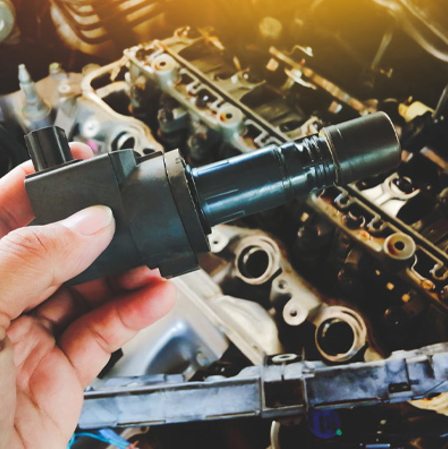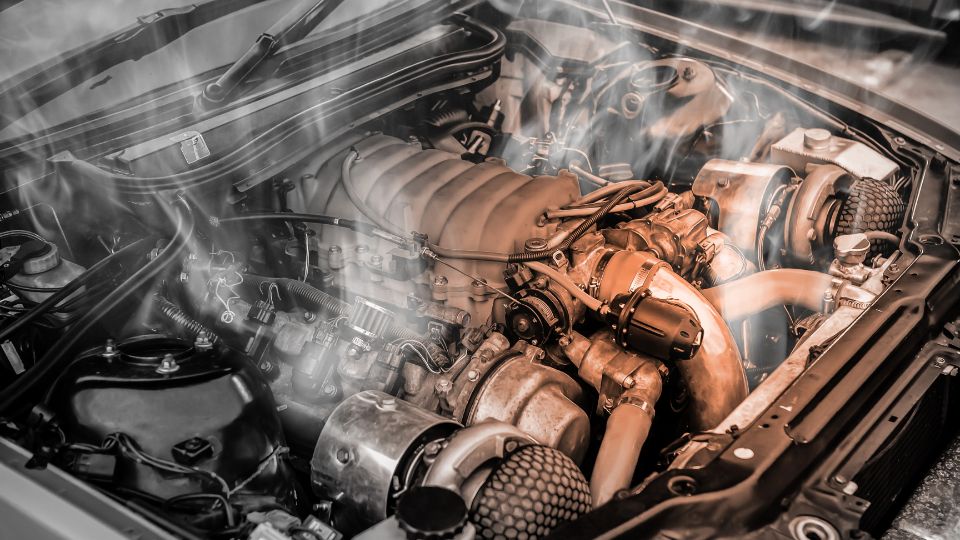
It can be frustrating when you are in a hurry and your car won’t start. Car starting problems can range from as simple as dead batteries to more complex engine and electrical system failures. Having the ability to troubleshoot car starting problems will save you valuable time and resources and help you not feel helpless when your vehicle will not start.
This guide will walk you through the most common car starting problems, methods for diagnosing the causes, and steps that can be taken in order to troubleshoot the problems. It is vital to learn how to troubleshoot car starting problems since it will enable you to become more confident in tackling minor car troubles without spending much money on expensive repairs or making unnecessary trips to a mechanic.
Common Car Starting Problems
Let’s talk about what could cause such an issue before we dive into the details of how to troubleshoot car starting problems. Car starting issues usually fall under one of the following categories:

- Battery Problems
- Starter Motor Failure
- Ignition System Malfunctions
- Fuel System Malfunctions
- Alternator problems
- Fuses/Electrical problems
Each one of these problems will essentially affect the car in different manners, and how you would solve each issue is what helps get your car back on the road.
1. Battery Issues
Dead or weak battery is the most common reason your car will not start. You hear a clicking noise, or nothing, when you turn the key around because, at this point, the battery has no power to give the starter motor. If your lights dim and your radio will not come on, your battery may be the problem.
How to Troubleshoot car starting problems Associated with the Battery:
- Check the Battery Terminals: Over time corrosion can form around the battery terminals that prevents the battery from properly connecting to the electrical system of the car. Make sure to check these terminals for corrosion and clean them with a mixture of baking soda and water.
- If it’s still not starting, time to test for the battery’s voltage Take out a multimeter and check your battery’s voltage. The value of the battery should be around 12.6 volts if fully charged; if it is below that, it probably just needs a new battery.
- Jump Start the Vehicle. If you have jumper cables and another vehicle, try jumping starting your car. If it does start, your battery probably just went dead and needs to be replaced.
2. Starter Motor Failure
The starter motor turns the engine over for you to start your vehicle. If, when you turn the key to start your car, you hear grinding or clicking without the engine turning over, this might be a sign of failure in the starter motor, starter solenoid, or even the motor.
How to Troubleshoot car starting problems Related to the Starter Motor:
- Click Sound: If you turn the key and a clicking sound comes at once, there could be the probability that your starter motor is not getting enough power for it to engage. It may also indicate one of your connections is loose, or its brushes are corroded.
- Check the Starter Motor: If the starter motor fails, you replace it. But before jumping to conclusions, check the wiring and connections to make sure everything is clean and secure too.
- Check the Starter Relay: The starter relay may also be the culprit. You can use a multimeter to check if it works. It may just help by simply replacing a faulty relay.
3. Problems with the Ignition System

This is yet another reason why your car won’t start. This includes problems with the ignition coil and ignition switch, or even the spark plug. You have heard the engine turn over when you turn the key and doesn’t catch. It may be an ignition system malfunction if this happens.
How to Ignition System Related Troubleshoot Car Starting Problems:
- Verify the Ignition Key and Switch: If it is damaged, or if the key is worn out, that would prevent it from properly engaging the ignition system. Use an alternative key, if available; replace the ignition switch if the alternative key works.
- Check the Spark Plugs: Worn or dirty spark plugs can keep your engine from firing. Remove the spark plugs and check for presence of wear or dirt. Clean or replace the spark plugs if required, to get your engine firing again.
- Test the Ignition Coil: The ignition coil supplies the spark that is required to ignite the air-fuel mixture in the engine. A failing ignition coil may cause the engine to not turn over. You can use a multimeter to test the coil, or replace it, if necessary.
4. Fuel System Failures
Another very common cause of troubleshoot car starting problems is an unfunctioning fuel system. If your car is not getting enough fuel, it will not start. Problems with a clogged fuel filter, fuel pump failure, or even an empty gas tank can prevent the engine from getting fuel necessary to run.
How to Troubleshoot car starting problems associated with the fuel system:
- Check the Fuel Gauge: Sometimes, the problem is as simple as running out of fuel. Ensure that your fuel tank is not empty before proceeding to other troubleshoot car starting problems steps.
- Check the Fuel Pump: If you can hear the fuel pump when you turn the ignition key to the “on” position, then in all likelihood, the fuel pump is functioning. If you don’t hear any sound, then the fuel pump probably is busted and has to be replaced.
- Replace the Fuel Filter: A clogged fuel filter can starve the engine of fuel. If it’s over a year since the fuel filter was replaced it more than likely needs to be changed.
- Check for Fuel Leaks: Fuel leaks can starve the engine of fuel. Under your car, check for fuel puddles or a gasoline smell.
5. Alternator Problems
An alternator is used to charge a car’s battery when it is running. When an alternator malfunctions, a dead battery is usually the outcome, and the car won’t start if the alternator does not function properly. Normally, alternator problems manifest in dimmer lights or electrical failure.
How to Troubleshoot car starting problems Caused by the Alternator:
- Test the Alternator: If your car starts but you have trouble with the electrical system, you could test the alternator. Test the battery voltage while the engine is running; it should run around 13.8 to 14.2 volts. If that’s not there, you might have to change your alternator.
- Monitor Warning Lights: Of all the dashboard warning lights regarding the alternator or even the battery, this may indicate a failure in charging.
6. Fuses and Electrical Issues
Another cause of no-starting situation is that dead fuse or electrical fault within the wiring. A car has a car fuse box containing different fuses, which control a variety of electrical components, such as an ignition system. Dead fuse might be preventing your car to start.
Troubleshoot car starting problems Related to Fuses and Electrical Wiring:
- Inspect the Fuses: Check the fuse box for blown fuses. If you find a blown fuse, replace it with a new one of the same rating.
- Check the Wiring: Faulty or corroded wires can be another possible reason for starting problems. Ensure that the wiring from the battery, starter, and ignition system have no signs of visible damage or loose connections.
7. Engine Overheating Problem

An overheated engine can also cause a starting problem. As the engine reaches some abnormal high temperature; it may cause several other problems like warped components, blown gaskets, and other issues in the ignition system. It can altogether prevent the car to start if the engine was overheating.
How to Troubleshoot car starting problems due to Engine Overheating:
- Check Coolant Levels: Low coolant levels are often one of the biggest reasons why engines can overheat. Just make sure the coolant reservoir is full, and if it’s low, make sure to top it off.
- Examine the Radiator: A radiator is crucial to helping cool your engine. Observe whether there are leaks or clogs that would prevent the coolant from circulating.
- Check the Thermostat: A faulty thermostat can cause the engine to overheat. When the thermostat is stuck closed, coolant cannot flow into the engine, which leads to overheating. Replacing it might remedy the problem.
- Sometimes, overheating permanently damages the engine parts. If your car has overheated to an extreme, check for oil leaks, coolant leaks, or exhaust smoke emissions. In some instances, major repairs may be necessary.
The above solution on the causes of overheating and troubleshoot car starting problems can help you avoid such long-term damage of the engine and ensure it functions well.
More Tips on How to Troubleshoot car starting problems
- Maintain your vehicle regularly. Most starting problems can be prevented by changing the oil, replacing the spark plugs, and checking the fluid level. When a car is well maintained, it is less likely to create problems when starting the car.
- Consult the Owner’s Manual: Probably, there are procedures on troubleshooting and guides to troubleshoot car starting problems in your owner’s manual. It can also enlighten you on specific systems of your car.
- Consider Professional Help: Some problems require professional solution; if you are unable to solve a certain problem after running through the steps provided, it is best you consult a mechanic.
Conclusion
Troubleshoot car starting problems is a must for every car owner. Be it a battery problem, ignition system issues, fuel system problems, or the electrical components, common causes of a starting issue will help you suspect the problem quickly. It takes normal maintenance and proper troubleshoot car starting problems to save you from wasting a lot of time and money spent on minor issues turning into major and highly expensive repairs.
This way, you will be able to tackle most problems in starting a car on your own but will have no qualms in consulting professional mechanics when you are unsure or if the problem persists. With the right tools and knowledge in place, you will surely be able to get out of any situation and also avoid breakdowns. You can check other guide to know Hybrid Cars Maintenance: What You Need to Know